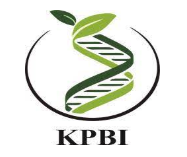PEMBELAJARAN PROBLEM POSING DENGAN TEKNIK THINK PAIR SHARE: PENGARUHNYA TERHADAP BERPIKIR KREATIF SISWA SMA PADA PEMBELAJARAN BIOLOGI
DOI:
https://doi.org/10.15575/bioeduin.v9i2.6241Keywords:
Pembelajaran problem posing, Teknik Think Pair Share (TPS), Kemampuan Berpikir Kreatif.Abstract
References
BSNP. (2007). Panduan Penilaian Kelompok Mata Pelajaran Ilmu Pengetahuan dan Teknologi. Jakarta: Departemen Pendidikan Nasional.
BSNP. (2010). Laporan Tahun 2010. Jakarta: Departemen Pendidikan Nasional.
Cohen, L., Manion, L, & Morrison, K. (2011). Research Methods in Education. New York: Routledge.
Ghasempour, Z., Bakar, N., & Jahanshahloo, G.R. (2013). Innovation in teaching and learning through problem posing task and metacognitive strategies. International Journal of Pedagogical Innovations, 1 (1), hlm. 53-62.
Hurlock, E.B. (1978). Perkembangan Anak Jilid 2, Terj. dari Child Development Sixth Edition, oleh Meitasari Tjandrasa. Jakarta: Erlangga.
Kemendikbud. (2013). Salinan Peraturan Menteri Pendidikan dan Kebudayaan Republik Indonesia No. 81A Tahun 2013 Tentang Implementasi Kurikulum. Jakarta : Kemendikbud.
Lie, A. (2008). Mempraktekkan Cooperative Learning di Ruang Kelas. Jakarta: Gramedia.
Mishra, S., & Iyer, S.(2015). An Exploration of Problem Posing-based Activities As An Assessment Tool and As An Instructional Strategy. Research and Practice in Technology Enhanced Learning, 10 (5), hlm.1-19.
Raba, A. A. A. (2017). The Influence of Think-Pair-Share (TPS) on Improving Students’ Oral Communication Skills in EFL Classrooms. Creative Education, 8, 12-23.
Sarwinda, W. (2013). Pemberdayaan Keterampilan Berpikir Kreatif Siswa Melalui Strategi Reciprocal Teaching Pada Pembelajaran Biologi SMA. Seminar Nasional X Pendidikan Biologi FKIP UNS), hlm.14-139.
Shoimin, A. (2014). 68 Model Pembelajaran Inovatif dalam Kurikulum 2013. Yogyakarta: Ar-Ruzz Media.
Thobroni, M., & Mustofa, A. (2011). Belajar & Pembelajaran. Jakarta : Ar-Ruzz Media. Tint, S.S., & Nyunt, E.E. (2015). Collaborative Learning with Think Pair Share Technique. Computer Aplication: An International Journal. 2 (1), hlm. 1-
Downloads
Published
How to Cite
Issue
Section
Citation Check
License
Authors who publish in Jurnal BIOEDUIN agree to the following terms:
- Authors retain copyright and grant the journal right of first publication with the work simultaneously licensed under a Attribution-ShareAlike 4.0 International (CC BY-SA 4.0) License that allows others to share the work with an acknowledgment of the work's authorship and initial publication in this journal.
- Authors are able to enter into separate, additional contractual arrangements for the non-exclusive distribution of the journal's published version of the work (e.g., post it to an institutional repository or publish it in a book), with an acknowledgment of its initial publication in this journal.
- Authors are permitted and encouraged to post their work online (e.g., in institutional repositories or on their website) prior to and during the submission process, as it can lead to productive exchanges, as well as earlier and greater citation of published work (See The Effect of Open Access).








